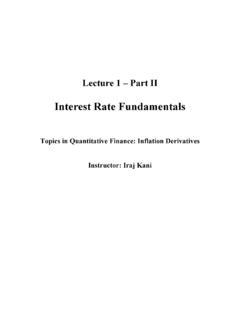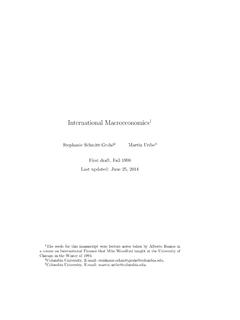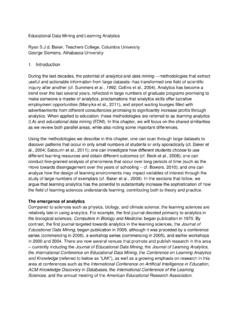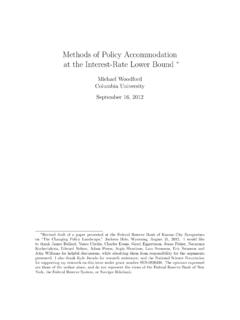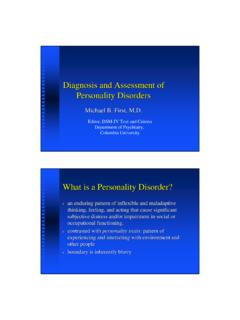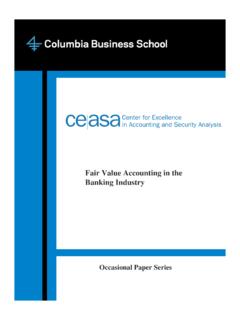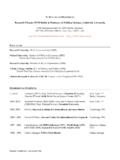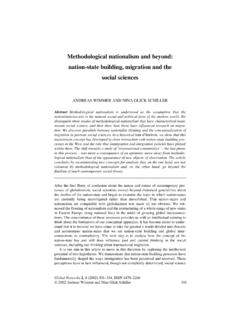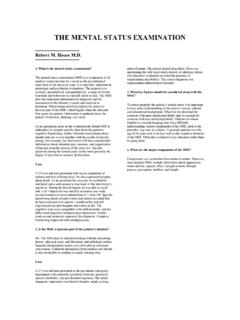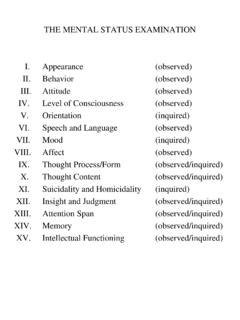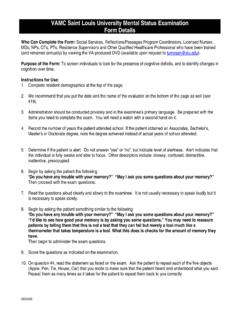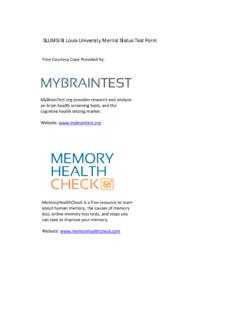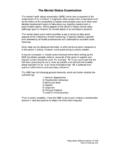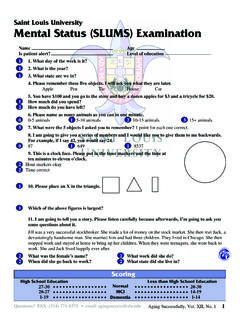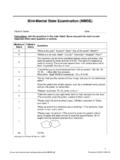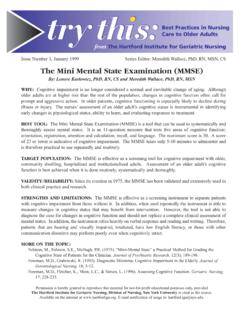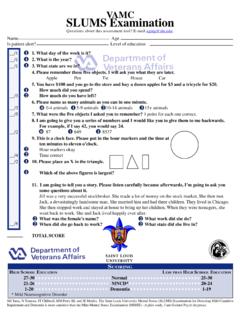Transcription of mental status exam - Columbia University
1 mental status examination I. Definitions of Some mental status examination Findings Behavior psychomotor agitation - noticeable and marked increase in body movements; eg hand wringing, pacing psychomotor retardation - significant slowing of speech and body movements, lack of usual fidgetiness Mood Expansive - enthusiastic Euphoric - feeling great, as if one just won the lottery Affect blunted- decrease in amplitude of emotional expression flat - virtually complete absence of affective expression constricted - normal amplitude but restricted range inappropriate - emotions expressed are .not congruent with content of patient's thoughts (occasion# nervous smiling or laughter is not sufficient). labile - unpredictable shifts in emotional state Thought circumstantial - organized but over inclusive, eventually gets to the point in a painstakingly process slow manner tangential - occasional lapses in organization such that the patient suddenly changes the subject and never returns to it; if a question is asked, it isn't answered loosening of associations - frequent lapses in connection between thoughts word salad - incomprehensible speech due to lapses in connections even within a single sentence.
2 Incoherent, a "tossed salad" of ideas blocking - patient loses his or her train of thought; by definition, the patient should confirm the subjective experience of being blocked; the term should not be based on the interviewer's observation alone neologisms - words that are created by the patient and have their own idiosyncratic meaning flight of ideas - flow of thoughts is extremely rapid but connections remain intact Thought delusion - a firmly held, false belief not shared by members of the patient's culture. By content definition, reality testing is not intact ( , the patient is unable to consider the possibility that the belief is incorrect). obsession - an idea that is intrusive and egodystonic; should not be confused with ruminations, which are egosyntonic, or delusions.
3 By definition, reality testing is preserved ( , the patient will readily acknowledge that the obsession makes no sense.). overvalued idea - a false belief not shared by members of the patient's culture that is not fixed ( it is held to more firmly than one would expect but reality testing is maintained). Paranoid ideation - (suspiciousness about others' motives) and ideas of reference (misinterpretation of external events as having particular meaning for the patient) are specific types of overvalued ideas. Phobia - a specific fear that results in avoidance of the situation or object despite the patient's realization that the fear is irrational Perception illusion - misinterpretation of a sensory stimulus that can occur in any sensory rnodality ( , misperceiving billowing curtains in a darkened room to be an intruder).
4 Hallucination - perceiving a sound, sight, taste, smell or touch in the absence of external sensory stimulation that seems indistinguishable from such an experience in reality depersonalization - the sense that one is outside of his or her self derealization - a vague sense of unreality in one's perception of the external worl
